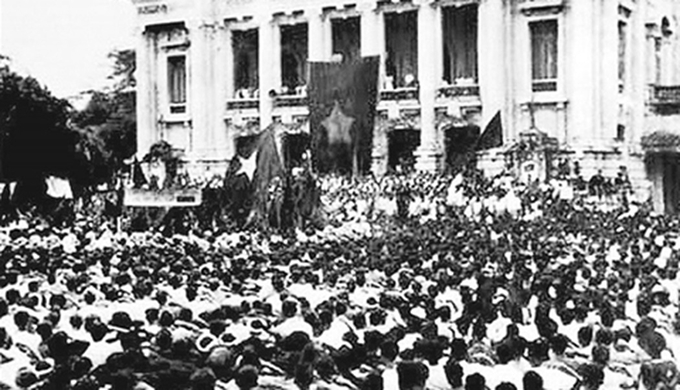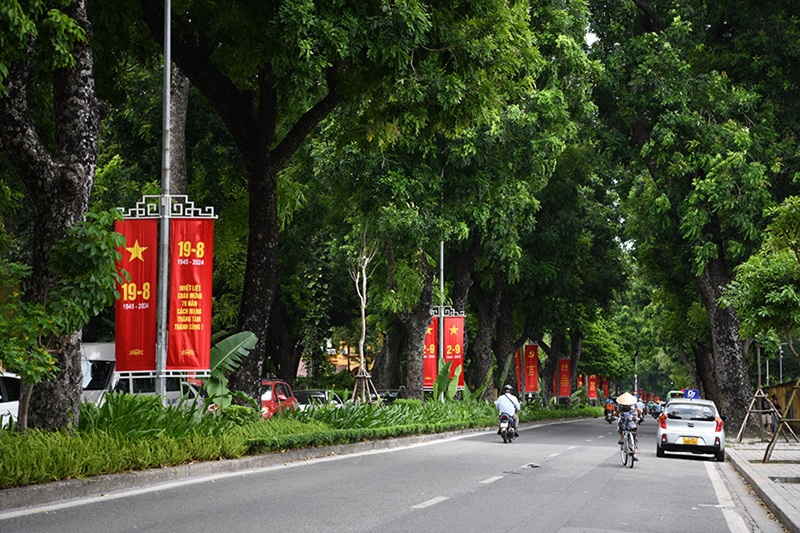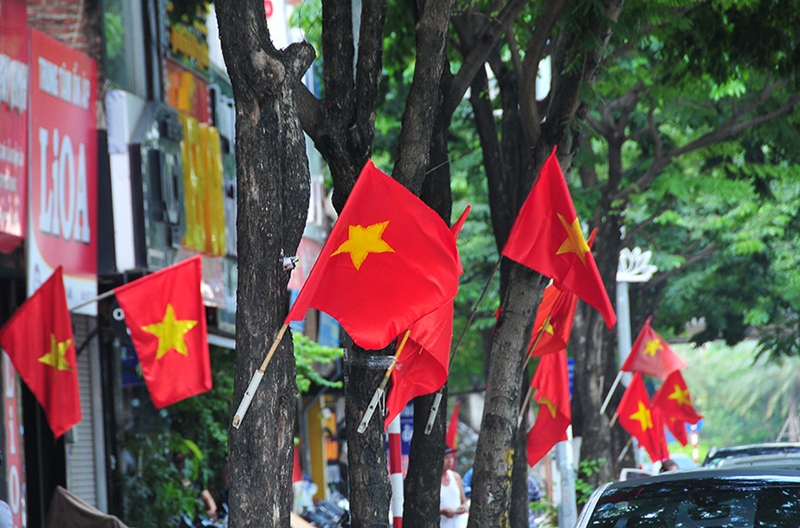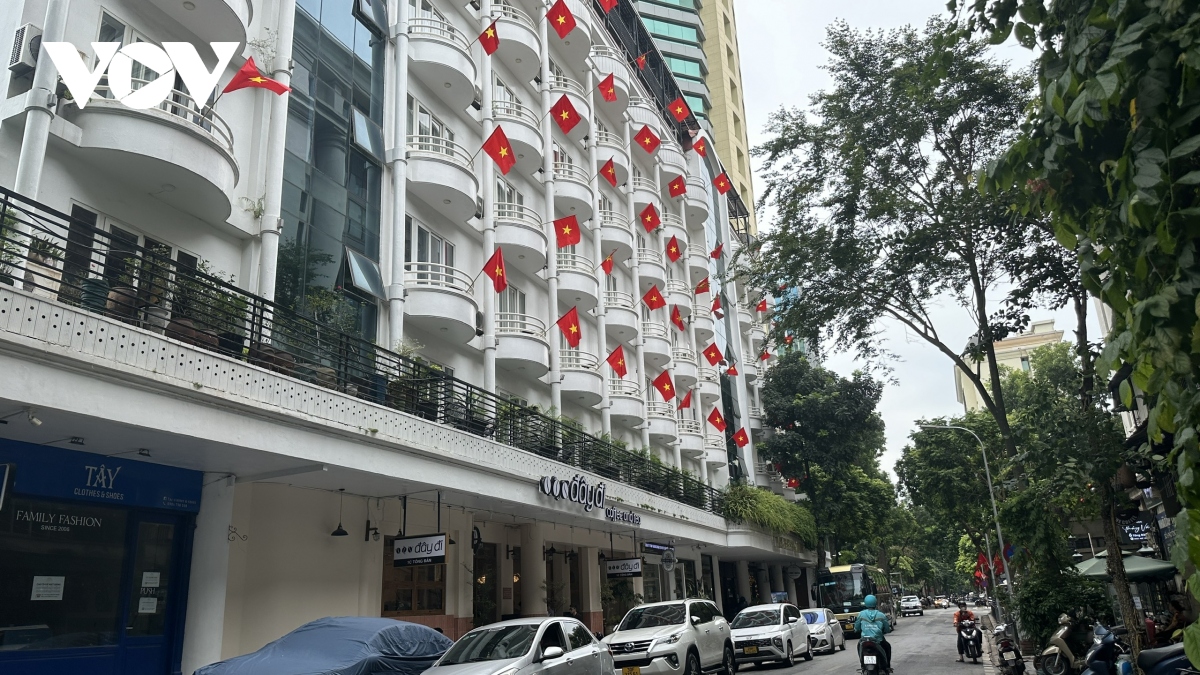Looking back at history, in early 1945, World War II entered its decisive phase. The Soviet army achieved a series of decisive victories on the European battlefield, liberating a number of countries and advancing directly into the stronghold of Nazi Germany in Berlin. On May 9, 1945, Nazi Germany surrendered unconditionally, ending the war in Europe. On August 8, 1945, the Soviet Union declared war on Japan and, within a week, annihilated Japan's elite Kwantung Army, pushing the Japanese fascists into an inevitable defeat. On August 14, 1945, the Japanese fascists surrendered unconditionally, ending World War II.
Domestically, having overcome numerous arduous challenges and crucial maneuvers such as the revolutionary high tide of 1930-1931, the democratic movement of 1936-1939, and the national liberation movement of 1939-1945, the revolutionary movement grew increasingly strong. Given the favorable international and domestic situation, the Party made decisive decisions to accelerate preparations for the uprising to seize power.
Previously, in Indochina, on March 9, 1945, the Japanese fascists staged a coup, ousting the French. That same night, the expanded meeting of the Central Committee's Standing Committee decided to launch a revolutionary movement as a prelude to a general uprising, adapting the forms of propaganda, mobilization, organization, and struggle accordingly. In March 1945, the Central Committee issued the Directive "The Japanese-French Conflict and Our Actions." From April 1945 onwards, the anti-Japanese national salvation movement intensified, becoming rich in content and form. In August 1945, the National Congress of the Party, meeting in Tan Trao (Tuyen Quang), affirmed: "A very good opportunity for us to gain independence has arrived," and decided to launch a nationwide uprising to seize power from the Japanese fascists and their collaborators before the Allied forces entered Indochina. Under the leadership of the Party and President Ho Chi Minh, the people throughout the country rose up simultaneously, carrying out a general uprising to seize power.
On August 13, 1945, the National Uprising Committee was established, issuing Military Order No. 1: Calling on the entire nation to rise up in rebellion to seize power. On August 16, 1945, the National Congress in Tan Trao adopted the "Ten Major Policies of the Viet Minh," approved the "Order for General Uprising," decided on the national flag (red background with a yellow star), the national anthem, and elected the Central National Liberation Committee with Comrade Ho Chi Minh as Chairman. President Ho Chi Minh sent a letter calling on the people of the whole country to launch a general uprising, clearly stating: "The decisive hour for the destiny of our nation has arrived. All compatriots throughout the country, rise up and use your strength to liberate yourselves." Under the leadership of the Party and President Ho Chi Minh, the people of the whole country simultaneously rose up, launched a general uprising, and seized power.
From August 14th to 18th, the general uprising broke out and achieved victory in the rural areas of the Northern Delta, the majority of Central Vietnam, parts of Southern Vietnam, and in the towns of Bac Giang, Hai Duong, Ha Tinh, Hoi An, Quang Nam, etc.
On the morning of August 19, 1945, following the call of the Viet Minh, the entire city of Hanoi rose up under a sea of red flags with yellow stars, marching straight to the city theater to attend a rally. After a ceremonial gun salute and the singing of the "Marching Song," representatives of the Revolutionary Military Committee read the Viet Minh's call to arms. The rally turned into an armed demonstration that proceeded to occupy the Governor's Palace, the security forces' barracks, and other facilities of the puppet government. The uprising of the people of the capital was a complete victory.
From Hanoi, the revolutionary wave spread everywhere, the whole country rose up to fight for power and achieved continuous victories. On August 23, uprisings were victorious in Hue and in Bac Kan, Hoa Binh, Hai Phong, Ha Dong, Quang Binh, Quang Tri, Binh Dinh, Gia Lai, Bac Lieu... On August 25, uprisings were victorious in Saigon - Gia Dinh, Kon Tum, Soc Trang, Vinh Long, Tra Vinh, Bien Hoa, Tay Ninh, Ben Tre... In Con Dao, the Party Committee of Con Dao prison led the imprisoned revolutionary fighters to rise up and seize power.
The earth-shattering power of the uprising of millions of people created an overwhelming advantage, dealing a decisive blow to all the central organs of the puppet government, paralyzing all resistance from hostile forces, and leaving them no time to react. The August Revolution's General Uprising to seize power was a resounding success throughout the country on August 28, 1945. On August 30, 1945, Bao Dai – the last emperor of the Nguyen dynasty – abdicated, handing over the golden seal and jeweled sword to the Viet Minh representative. For the first time in the history of the Vietnamese nation, the government of the entire country belonged to the people.
On September 2, 1945, at the historic Ba Dinh Square, before hundreds of thousands of people, on behalf of the Provisional Government, President Ho Chi Minh solemnly read the Declaration of Independence, proclaiming to the entire nation and the world the birth of the Democratic Republic of Vietnam.
The Declaration of Independence states: "A nation that has bravely resisted French enslavement for over 80 years, a nation that has bravely stood with the Allies against fascism for several years, that nation must be free! That nation must be independent!"
"The Vietnamese nation has the right to freedom and independence, and has truly become a free and independent nation. The entire Vietnamese people are determined to dedicate all their spirit and strength, lives and property, to preserving that right to freedom and independence."
The August Revolution of 1945 was the first great victory of our people since the Party's leadership, marking a great turning point in the history of the Vietnamese nation. Power was transferred to the people, and the Democratic Republic of Vietnam was established – the first workers' and peasants' state in Southeast Asia; ending the feudal monarchy in Vietnam; and concluding over 80 years of our people's subjugation under colonial and fascist rule. The Vietnamese people, from a state of slavery, became citizens of an independent country, masters of their own destiny. Vietnam, from a semi-feudal colonial country, became an independent, free, and democratic nation. The Communist Party of Vietnam became the ruling party. From here, the country, society, nation, and people of Vietnam entered a new era, an era of national independence linked with socialism.

Rally commencing the general uprising at the Hanoi Opera House Square (Archival photo)
From the victory of the August Revolution, the Vietnamese people, from a state of slavery, became citizens of an independent nation, masters of their own destiny. Vietnam, from a semi-feudal colonial country, became an independent, free, and democratic nation. The Communist Party of Vietnam became the ruling party. Under the leadership of the Party, our people achieved glorious victories that resonated throughout the world, culminating in the historic Dien Bien Phu victory in 1954 and the historic Ho Chi Minh Campaign in 1975, liberating the South and unifying the country; ushering our nation into an era of independence, unity, and the entire country advancing towards socialism.
The ten years of national progress along the socialist path (1975-1985) were a period in which our Party explored the path of reform. This was also a time when new thinking gradually emerged, stemming from the vibrant realities of the Vietnamese revolution. The achievements and shortcomings of those ten years left valuable lessons for the cause of building socialism in Vietnam in the years that followed. The Sixth Party Congress (December 1986) introduced the reform line, marking a crucial turning point in the cause of building socialism in our country. Over the past 38 years of reform, our country has achieved tremendous, historically significant victories in politics, economics, culture, society, security, national defense, foreign relations, Party building, and the construction of a socialist rule of law state... This shows that, under the leadership of the Party, the path to Socialism is the inevitable path to success, and the guiding principle for all actions is Marxism-Leninism and Ho Chi Minh Thought. 79 years since the successful August Revolution, 79 years since the Democratic Republic of Vietnam (now the Socialist Republic of Vietnam) appeared on the world map. Our position on the international stage has continuously increased, and the achievements after 38 years of reform are proof of that sustainable development.
On August 28, 2024, at the Ho Guom Theater in Hanoi, General Secretary and President To Lam and his wife presided over the ceremony commemorating the 79th anniversary of the National Day of the Socialist Republic of Vietnam (September 2, 1945 - September 2, 2024).
Speaking at the ceremony, General Secretary and President To Lam stated that on September 2, 1945, at the historic Ba Dinh Square, President Ho Chi Minh read the Declaration of Independence, solemnly proclaiming to the world the birth of the Democratic Republic of Vietnam, now the Socialist Republic of Vietnam. For the past 79 years, under the leadership of the Party, following the call of President Ho Chi Minh, echoing the Oath of Independence, with the immortal thought "Nothing is more precious than independence and freedom," the entire Vietnamese nation has united as one, together with sincere international solidarity, leading the Vietnamese revolution to achieve one victory after another, liberating the nation, unifying the country, successfully implementing the reform process, and steadily advancing towards socialism.
The General Secretary and President emphasized that, from a land without a name on the world map, from a country heavily devastated by war, Vietnam has risen to become a symbol of peace, stability, hospitality, and a destination for international investors and tourists. From a backward economy, Vietnam has risen to become one of the top 40 economies, with a trade volume among the top 20 countries in the world, a crucial link in 16 Free Trade Agreements (FTAs) connecting with 60 key economies in the region and globally. From a country surrounded and isolated, Vietnam has established diplomatic relations with 193 countries worldwide, has strategic partnerships and comprehensive partnerships with 30 countries, including all permanent members of the United Nations Security Council, major powers, and is an active member of over 70 regional and international organizations. With the happiness and well-being of its people as its ultimate goal, Vietnam is regarded by the United Nations and international friends as a success story, a shining example of poverty eradication and continuous improvement of the material and spiritual lives of its people.
The General Secretary and President affirmed that the great achievements after 79 years of the nation's founding are due to the patriotic spirit, national unity, self-reliance, self-strength, and the intense aspiration for independence, freedom, and happiness of the Party, State, and people of Vietnam; and at the same time, under the wise and skillful leadership of the Communist Party of Vietnam - a Party that always takes serving the people as its purpose and goal, always absolutely and unconditionally loyal to the interests of the nation and the people. The Party, State, and people of Vietnam are striving to accelerate their efforts to achieve the goals of the 13th National Congress of the Party, aiming towards the 80th anniversary of independence and the 50th anniversary of national reunification...
General Secretary and President To Lam also emphasized that the Party, State, and people of Vietnam wish to continue receiving the support and close cooperation of friends, partners, and peace-loving people around the world, with the role of diplomats, heads of international organizations' representative offices in Vietnam, and foreign investors acting as bridges and facilitators in the process of national construction and development. He also firmly believes that together, we will overcome all challenges, seize opportunities, and jointly build a peaceful and sustainable developed world, shaping a just international political and economic order based on the fundamental principles of the United Nations Charter and international law.
In recent days, streets throughout Hanoi and across the country have been adorned with banners, flags, and flowers to enthusiastically celebrate the 79th anniversary of the successful August Revolution and National Day on September 2nd.

(Photo from the Communist Party's online newspaper)


Author:USSH Media Collection
Newer news
Older news